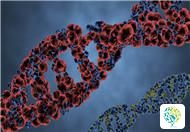The manifestations of chromosomal abnormalities in women are infertility or problems such as fetal arrest, miscarriage, stillbirth, or congenital malformations of the fetus. If a woman has fetal arrest or recurrent miscarriages, or if there is a family history of chromosomal abnormalities, it is important to undergo chromosomal testing before pregnancy preparation. Both husband and wife should undergo testing and ensure that no abnormalities are detected before preparing for pregnancy.

1. Chromosomal abnormalities can be classified into many types, generally divided into polymorphic or pathological abnormalities. If it is only a polymorphic chromosomal abnormality, it is similar to the height, weight, and body shape variations in the general population and has no special significance. It has no impact on physical health, intelligence, or fertility.
2. If the chromosomal abnormality is pathological, such as aneuploidy or balanced translocation, it can not only affect intellectual development but also fertility and physical health. In such cases, it is necessary to choose a reasonable treatment method.
3. Chromosomal abnormalities in women are genetic issues that cannot be cured. If a woman desires to have children, she can undergo genetic screening through in vitro fertilization to fulfill her wish of becoming a mother. Additionally, it is crucial for women to undergo regular prenatal checkups, including Down's syndrome screening and amniotic fluid aspiration, to monitor the development of the fetus during pregnancy.

